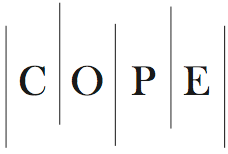About Journal of Zoological and Botanical Gardens
Aims
The Journal of Zoological and Botanical Gardens (ISSN 2673-5636) is an international, multidisciplinary, peer-reviewed, open-access and open-source scientific journal that covers areas at the intersection of fauna and flora conservation. It publishes reviews, original research papers, short communications and opinion papers, without limits in terms of the maximum length of manuscripts.
The Journal of Zoological and Botanical Gardens draws together expertise from multiple disciplines (i.e., biology, conservation, veterinary science, geography, limnology, ecology, geology, paleology, archaeology, arboriculture, anthropology, history, social sciences and humanities), to explore pure and applied research questions concerning the management, conservation and sustainability of biodiversity (i.e., plants, animals, fungi, protozoa, viruses and bacteria) and human/nature heritage issues.
Scope
The journal scope includes all aspects related to botanical gardens, zoological gardens, natural sciences museums and other similar institutions. Main interests focus on:
- ex-situ conservation
- zoological gardens
- botanical gardens
- animal welfare
- animal behaviour
- animal cognition
- veterinary science
- animal nutrition
- education
- environmental enrichment
- human-animal interactions
- aquarium
- visitors effect
MDPI Publication Ethics Statement
 MDPI is a member of the Committee on Publication Ethics (COPE).
MDPI takes the responsibility to enforce a rigorous peer-review together with strict ethical policies and standards to ensure to add
high quality scientific works to the field of scholarly publication. Unfortunately, cases of plagiarism, data falsification, inappropriate
authorship credit, and the like, do arise. MDPI takes such publishing ethics issues very seriously and our editors are trained to proceed in
such cases with a zero tolerance policy. To verify the originality of content submitted to our journals, we use iThenticate to check submissions against previous publications.
MDPI is a member of the Committee on Publication Ethics (COPE).
MDPI takes the responsibility to enforce a rigorous peer-review together with strict ethical policies and standards to ensure to add
high quality scientific works to the field of scholarly publication. Unfortunately, cases of plagiarism, data falsification, inappropriate
authorship credit, and the like, do arise. MDPI takes such publishing ethics issues very seriously and our editors are trained to proceed in
such cases with a zero tolerance policy. To verify the originality of content submitted to our journals, we use iThenticate to check submissions against previous publications.
Book Reviews
Authors and publishers are encouraged to send review copies of their recent related books to the following address. Received books will be listed as Books Received within the journal's News & Announcements section.
MDPI
Grosspeteranlage 5
CH-4052 Basel
Switzerland
Copyright / Open Access
Articles published in JZBG will be Open-Access articles distributed under the terms and conditions of the Creative Commons Attribution License (CC BY). The copyright is retained by the author(s). MDPI will insert the following note at the end of the published text:
Reprints may be ordered. Please contact publisher@mdpi.com for more information on how to order reprints. Announcements regarding academic activities such as conferences are published for free in the News & Announcements section of the journal. Advertisement can be either published or placed on the pertinent website. Contact e-mail address is jzbg@mdpi.com.Reprints
Announcement and Advertisement
Editorial Office
Contact usFor further MDPI contacts, see here.




